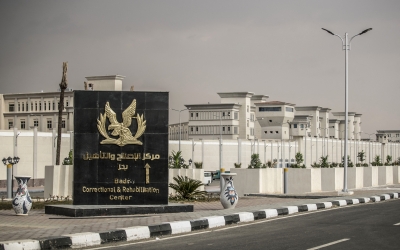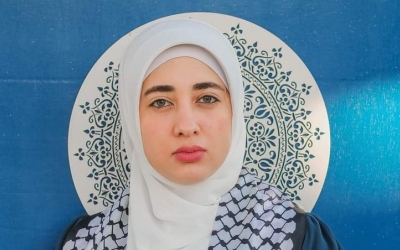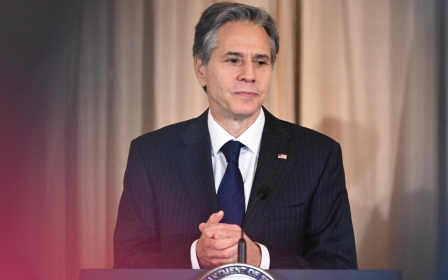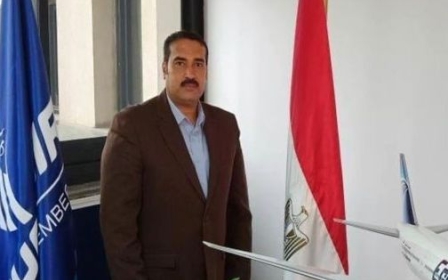Egypt uses ‘life-destroying’ travel bans to silence peaceful activism
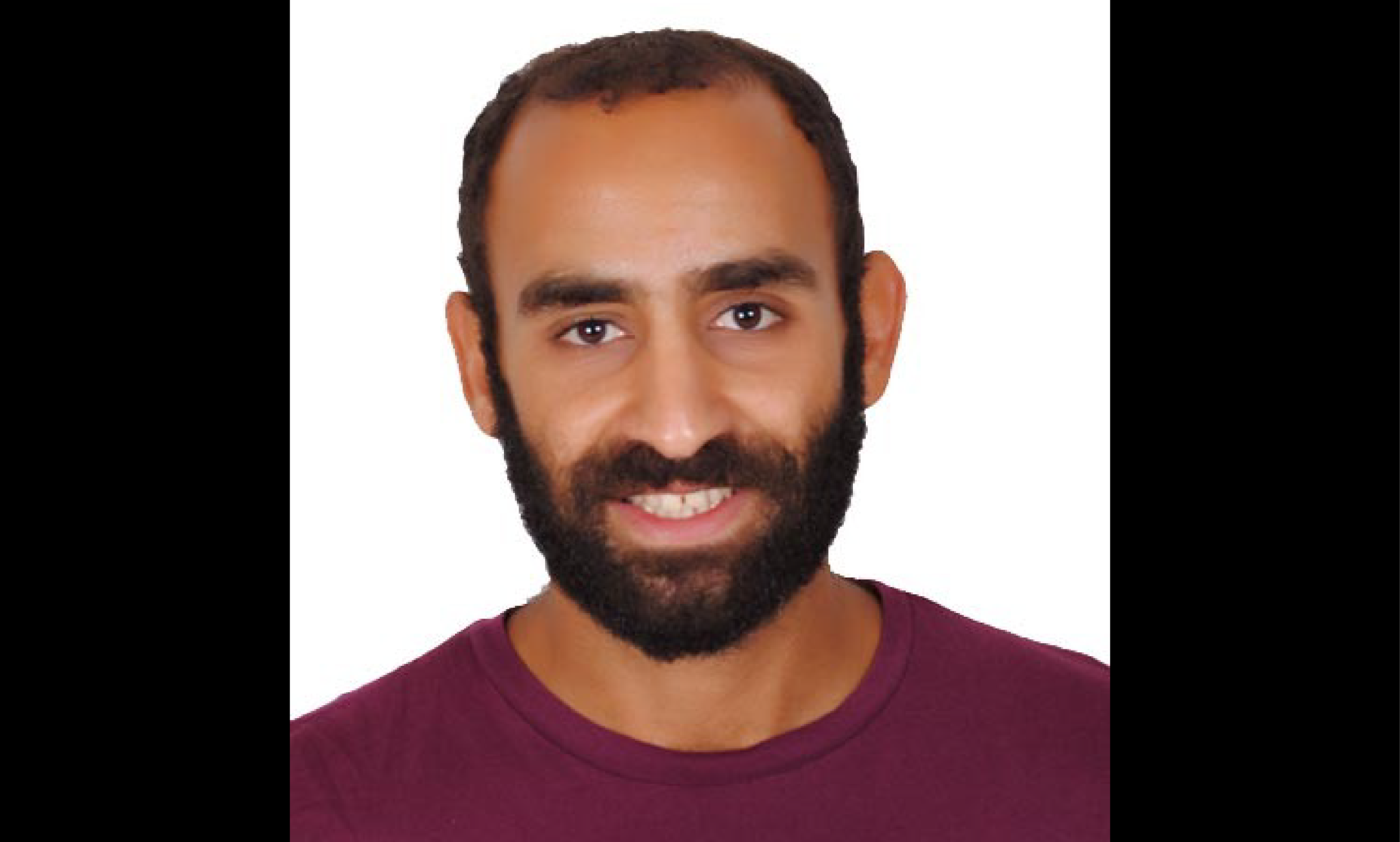
Egypt is imposing travel bans against civil society workers without a legal basis, shattering the lives of those affected, according to two reports by human rights watchdogs.
A joint report by FairSquare and Human Rights Watch published on Wednesday investigated the cases of 15 Egyptians who have been banned from travel for periods of up to six years.
The bans are usually arbitrary and are imposed without prior notification and are only discovered when individuals subject to the ban attempt to travel abroad.
'Travel bans enable authorities to impose a life-altering system of punishment that is barely visible to anyone except those whose lives they are destroying'
- James Lynch, FairSquare
Another report by the Freedom Initiative and the Tahrir Institute for Middle East Policy published on Tuesday found that there are no laws currently regulating the enforcement of travel bans, creating a legal vacuum that is exploited by judicial and security services.
They also found that a Ministry of Interior decree, No. 2214 of 1994, and its 2012, 2013, and 2014 amendments, empowers judicial and security authorities to request the imposition of three-year travel bans from the Passport Authority, and gives them the discretion to extend the ban indefinitely. Meanwhile, attempts to overturn the ban usually fail due to the absence of legal means to challenge them in courts.
New MEE newsletter: Jerusalem Dispatch
Sign up to get the latest insights and analysis on Israel-Palestine, alongside Turkey Unpacked and other MEE newsletters
“Arbitrary and open-ended travel bans enable the Egyptian authorities to impose a life-altering system of punishment that is barely visible to anyone except those whose lives they are destroying,” said James Lynch, director of FairSquare.
“The bans have allowed Egypt to silently pummel its critics without fear of attracting the ire of its donors and supporters in London, Paris, and Washington, DC. Egypt needs to end these arbitrary abusive practices immediately.”
Nasser Amin was unable to represent Darfur victims at the ICC, a "lifelong dream", in April this year because of his ban. He and his wife Hoda Abdelwahab, of the Arab Center for the Independence of the Judiciary and Legal Profession, are both barred from travel. (7/) pic.twitter.com/MKIQQPGnl2
— FairSquare (@fairsqprojects) July 6, 2022
The travel ban is in many cases accompanied by asset freezes that lock the victims out of the banking system, HRW and FairSquare said.
“The long-term personal toll of these travel bans and asset freezes has been devastating. Nearly everyone interviewed described losing work opportunities and income.
Many said the psychological impact of not knowing when these arbitrary restrictions would end has taken a serious toll on their mental health,” the groups reported, adding that the bans have a “chilling effect” on human rights advocacy as they serve as a deterrent against criticising the government.
The reports come as President Abdel Fattah el-Sisi declared 2022 as the “Year of Civil Society,” with his government due to host COP27, the global climate summit, in November.
HRW said in a previous report that the choice of Egypt as the host was unwise due to the restrictions on civil society in the country and the laws criminalising peaceful assembly, a crucial part of the summit.
Sisi's administration, in power since he ousted his democratically elected predecessor Mohamed Morsi in a coup in 2013, has been accused by HRW of overseeing “the worst human rights crisis in the country's modern history”.
An estimated 65,000 Sisi critics languish in Egyptian jails, while many have died in custody due to medical negligence, including Morsi.
'Depressed and isolated'
The rights groups said the travel bans have hindered the work of civil society workers whose jobs involve travel abroad and contact with US, EU and UN officials.
They cited the case of Mohamed Zaree, the Egypt director for the Cairo Institute for Human Rights Studies, who has been banned from travel since 2016, as well as human rights lawyer Mahienour el-Masry, whose passport was confiscated in 2018.
Since November 2020, staff at the Egyptian Initiative for Personal Rights (EIPR), including then-director Gasser Abdel Razek, and his colleagues Karim Ennarah and Mohammed Basheer, have been banned from travel even after their release from brief detention. None of them have been able to appeal the travel bans.
EIPR’s founder and current director Hossam Bahgat has also been subject to a travel ban and asset freezes since 2016.
'It doesn’t generate headlines like photographs of people in handcuffs and in cages and there’s no outrage after a travel ban'
- Hossam Bahgat, EIPR
“It doesn’t generate headlines like photographs of people in handcuffs and in cages and there’s no outrage after a travel ban,” Bahgat told FairSquare and HRW.
Ennarah’s personal life has been deeply affected by the ban because he had been planning to move to London to join his British wife, filmmaker Jess Kelly, prior to the ban. They have been forced to live in a long-distance relationship since the ban.
He said the restrictions have left him feeling “lonely because of the separation but also guilty most of the time”.
The asset freeze against him has also meant he is blocked from accessing the banking system.
“There are periods when I feel really depressed and isolated. Being unable to work is completely debilitating. It’s a perpetual state of legal and financial limbo.
"I’ve been approached for a few jobs but they always withdraw the offer when they find out I’ve got a bank freeze,” he said.
Gamal Eid, the award-winning activist and founder of the Arabic Network for Human Rights Information, is among those banned from travel since 2016. He announced in January that the group was shutting down its operations due to the impossibility of carrying out human rights work under the country’s restrictive NGO laws.
Similar to Ennarah, the ban has shattered Eid’s personal life. His wife is a US citizen and she moved with his daughter to New York in 2017. Due to the ban, he has not been able to visit them since then.
His US green card has also expired and he lost much of his income due to an asset freeze against him.
“There’s been a lot of opportunities, but I can’t work,” he said.
Likewise, Azza Soliman, the prominent lawyer and founder of the Centre for Egyptian Women’s Legal Assistance, has been banned from travel and her assets have been frozen since 2016.
Her financial circumstances have since been severely affected as she could no longer work for the United Nations after losing her access to the banking system, and could not even sell her car that was part of the asset freeze.
Six years after the ban, Soliman's ban was finally lifted and she has been able to travel since February 2022. But her assets remain frozen, according to the Freedom Initiative.
Middle East Eye delivers independent and unrivalled coverage and analysis of the Middle East, North Africa and beyond. To learn more about republishing this content and the associated fees, please fill out this form. More about MEE can be found here.


